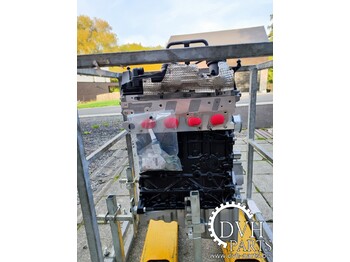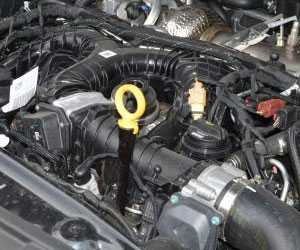Important Considerations and Tips for Picking the Right Engine for Your Demands
Choosing the ideal engine is a multifaceted decision that requires cautious factor to consider of various aspects to make certain optimal performance for your specific demands - amarok engine for sale. Recognizing your desired application is paramount, as the demands of commercial, commercial, or leisure usage will considerably influence your selection. Additionally, evaluating vital specs such as horsepower, torque, and gas performance, alongside maintenance needs and budget restrictions, will certainly lead you towards a lasting investment. The details of engine selection extend beyond these basics, motivating a more detailed examination of crucial aspects that can eventually impact your complete satisfaction and success.
Determine Your Purpose
Identifying your purpose is an essential primary step in selecting the right engine for your requirements. Comprehending the particular application you have in mind will direct your decision-making process and make certain that you pick an engine that aligns with your functional requirements. Whether you need an engine for a business vehicle, industrial machinery, or a leisure task, each circumstance needs various efficiency attributes and capacities.
Take into consideration the environment in which the engine will run. Will it undergo hefty tons, extreme temperature levels, or prolonged use? Assessing these factors will certainly help you identify the needed power outcome, gas performance, and resilience needed to satisfy your objectives.
In addition, consider the lasting ramifications of your option. Budget plan constraints, upkeep demands, and accessibility of components are important considerations that will affect your total fulfillment and operational performance.
Eventually, verbalizing your function will certainly streamline the choice procedure and encourage you to make a notified choice. By clearly defining your objectives, you can assess possible engines much more successfully and select one that not just fulfills your existing demands yet also sustains your future goals.
Evaluate Engine Specifications
Once you have actually plainly articulated your purpose, the next step is to review engine specifications. This process entails an extensive evaluation of different technical information that can dramatically affect efficiency and viability for your intended usage.
Begin by evaluating the engine's horse power and torque rankings. Horsepower is essential for identifying the engine's capacity to carry out work, while torque is necessary for recognizing exactly how well it can deal with hefty tons or acceleration. Additionally, take into consideration the engine variation, as it often associates with power output and effectiveness.
Next, take a look at the engine typeâEUR" whether it is a fuel, diesel, or different fuel engineâEUR" as each kind has unique features and applications. Take notice of the engine's configuration (e.g., inline, V-type), as this can affect dimension, weight, and overall performance.
Another important element is the engine's air conditioning system, which can influence reliability and maintenance demands. Finally, review the supplier's reputation and guarantee offerings, as these can provide understandings right into lasting efficiency and support. Thoroughly reviewing these requirements will assist guarantee that you pick an engine that lines up with your functional objectives and certain requirements.
Consider Fuel Efficiency
Fuel efficiency is an important factor to take into consideration when selecting an engine, as it directly affects functional prices and ecological sustainability. An engine's gas effectiveness is usually determined in miles per gallon (MPG) for automobiles or in certain fuel intake (SFC) for aircraft and aquatic engines. Greater gas performance not only reduces the quantity of fuel eaten but also minimizes greenhouse gas emissions, making it an accountable selection for eco-conscious customers.
When assessing engine choices, it is necessary to evaluate the driving conditions and meant use. Engines enhanced for freeway driving may show much better fuel performance compared to those made for stop-and-go website traffic. Additionally, take into consideration the engine's innovation, such as turbocharging or hybrid systems, which can significantly enhance fuel performance.

Assess Maintenance Demands

Begin by reviewing the manufacturer's suggested maintenance periods and procedures. Some engines more helpful hints might require more regular oil adjustments, filter replacements, or specialized maintenance, which can affect your functional downtime. Additionally, think about the schedule of parts and the convenience of obtaining them. Engines with extensive appeal generally have much better components availability, lowering lead times throughout fixings.
An additional essential element is the technological experience required for maintenance. Some engines might necessitate specialized training for technicians, which could restrict your options for solution providers. Analyze whether the engine's design enables for very easy accessibility to parts frequently needing maintenance, as this can significantly influence labor expenses.
Budget Your Financial Investment
Understanding maintenance requirements is just one facet of picking the appropriate engine; financial considerations play a just as essential function (amarok engine for sale). Developing a clear budget is vital, as it affects not just the initial purchase cost however additionally lasting functional prices
When budgeting, consider both the ongoing expenditures and ahead of time prices such as gas performance, upkeep, and possible fixings. An apparently economical engine might incur higher prices in time as a result of inadequate gas economic situation or constant maintenance requirements. Additionally, evaluate the availability and cost of extra components, in addition to the guarantees provided by producers, which can offer economic security against unforeseen costs.
It is also smart to consider potential funding options or renting plans, which can reduce immediate financial burdens. Balance your need for innovative features with your budget restraints, making certain that you purchase an engine that satisfies your performance needs without endangering monetary stability.
Ultimately, a well-rounded spending plan will empower you to make enlightened choices, straightening your Resources engine choice with both your operational requirements and monetary capabilities, resulting in a much more lasting investment over time.

Conclusion
In final thought, choosing the appropriate engine requires a detailed understanding of particular demands and applications. Mindful evaluation of engine specs, gas performance, and maintenance requirements is crucial for informed decision-making. Additionally, establishing a detailed spending plan guarantees that both preliminary and recurring expenses are workable. By sticking to these people, considerations and organizations can make a sustainable investment that lines up with their functional objectives and efficiency assumptions, inevitably enhancing overall efficiency and effectiveness.
Gas efficiency is an essential variable to take into consideration when picking an engine, as it directly impacts operational expenses and environmental sustainability. An engine's fuel efficiency is normally gauged in miles per gallon (MPG) for lorries or in certain fuel intake (SFC) for aircraft and marine engines. Diesel engines usually give better gas performance than gasoline engines. Eventually, picking an engine with a solid emphasis on gas performance can lead to substantial long-term savings and contribute positively to environmental initiatives. Mindful examination of engine specs, fuel efficiency, and upkeep requirements is essential for educated decision-making.